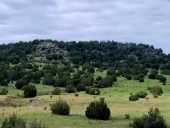
 2
2




 3
3




Some people age like fine wine. I aged like milk … sour and chunky.
 5
5




Invasive plants are Earth's way of insisting we notice her medicines. Stephen Herrod Buhner
Everyone learns what works by learning what doesn't work. Stephen Herrod Buhner
 5
5





 7
7




- Tim's Homestead Journal - Purchase a copy of Building a Better World in Your Backyard - Purchase 6 Decks of Permaculture Cards -
- Purchase 12x Decks of Permaculture Cards - Purchase a copy of the SKIP Book - Purchase 12x copies of Building a Better World in your Backyard
 6
6




"When the whole world is running towards a cliff, he who is running in the opposite direction appears to have lost his mind." C.S. Lewis
Visit https://themaineingredient.com for organic, premium dried culinary herbs that are grown, processed, and packaged in the USA.
 7
7




 7
7




“So I'm lightin' out for the territory, ahead of the scared and the weak and the mean spirited, because Aunt Sally is fixin’ to adopt me and civilize me, and I can't stand it. I've been there before.”
 5
5




Joshua States wrote: I second the advice to not do the "illegal" RV living thing. That is just asking for trouble, but there may be a variance process inside the local zoning ordinance where you can build a house on that undersized parcel and have temporary living accommodations while you build. Contact the zoning commission, or whatever they are called and ask those questions. They might even have a searchable version of the zoning ordinance online. Zoning ordinances can be complex and use a lot of legal jargon, so talking to a real person would be the best way to start.
Visit Redhawk's soil series: https://permies.com/wiki/redhawk-soil
How permies.com works: https://permies.com/wiki/34193/permies-works-links-threads
 7
7




Joshua States wrote:About that "landlocked" property, I would do this as soon as you have the time:
1. Find out the legal description of the parcel. This will typically have an APN (assessor's parcel number) for taxation purposes.
2. Somewhere, there is a plat map of the lot and surrounding lots. It might also possibly have a subdivision name. The legal description and APN will help you locate the plat map.
3. Contact the County Recorder's office and see if they have the plat map. That will show if there is an ingress/egress easement on one or more of the adjoining lots.
Invasive plants are Earth's way of insisting we notice her medicines. Stephen Herrod Buhner
Everyone learns what works by learning what doesn't work. Stephen Herrod Buhner
 12
12




Jay Angler wrote:
If you can't build, when you are ready to move somewhere you can have a home, you are likely to have difficulty selling the land.
I do wonder why the county allowed the land to be subdivided off, if it's too small to build on. Asking what it takes to get a variance on that rule would be worth it. Knowing *exactly* what the rules are before getting into a project is key. Another friend's building project was stalled for about 6 months because it turned out that the front steps stuck out too much towards the road! The "house" front was located just fine, it was *just* the steps sticking out that broke the rules. I can't remember whether they reoriented the steps, or applied for a variance, I would have to ask...
“So I'm lightin' out for the territory, ahead of the scared and the weak and the mean spirited, because Aunt Sally is fixin’ to adopt me and civilize me, and I can't stand it. I've been there before.”



 5
5




"The one small garden of a free gardener was all his need and due, not a garden swollen to a realm; his own hands to use, not the hands of others to command." -Samwise Gamgee, J.R.R. Tolkien

|
It is difficult to free fools from the chains they revere - Voltair
montana community seeking 20 people who are gardeners or want to be gardeners
https://permies.com/t/359868/montana-community-seeking-people-gardeners
|





